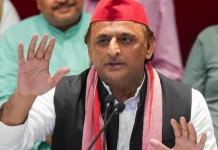
In the wake of escalating tensions over the Waqf Amendment Act, West Bengal Chief Minister Mamata Banerjee has stepped forward with a strong message of assurance to the minority communities of the state. Addressing concerns that have erupted into violent protests in parts of West Bengal, including Murshidabad’s Jangipur, the Chief Minister reiterated her government’s commitment to safeguarding the interests of all communities, especially the minorities, while urging for peace and patience.
In This Article:
On April 9, 2025, Mamata Banerjee made this significant announcement during a public event organised by the Jain community in Kolkata. Her address came just a day after public demonstrations in Jangipur turned violent, with protestors torching police vehicles and raising slogans against the Waqf (Amendment) Act. The situation highlighted the deep unrest within sections of the Muslim community who perceive the amendment as a threat to their religious and community institutions.
Understanding the Core Issue
The Waqf Amendment Act, passed recently by the Central Government, has stirred unease among minority communities, particularly Muslims, as it proposes changes in the administration and management of waqf properties — lands and assets donated for religious or charitable purposes. Critics argue that the amended provisions dilute the autonomy of state waqf boards and increase central oversight, potentially undermining community control over religious endowments and educational institutions like madrassas.
The legislation has sparked fears of encroachment on community rights, with many alleging that it is part of a broader pattern of marginalisation. Legal experts and religious scholars are still analysing the full implications of the bill, but the reaction on the ground is already volatile.
Mamata’s Response: A Balancing Act
Mamata Banerjee’s response to the crisis has been twofold — ensuring protection while calling for restraint. “I have a message for the minorities. I know you are upset [regarding The Waqf Amendment Act]. But have faith — nothing will happen in Bengal along the lines of divide-and-rule,” she stated emphatically.
She further urged the community to maintain peace, adding, “Let this message go to everyone — to live and let others live in peace.” In doing so, she positioned herself once again as a leader of inclusive governance, echoing her long-standing image as a protector of minority rights in Bengal.
While Mamata Banerjee did not directly challenge the Central Government’s decision on the Act, her remarks clearly signalled a resistance to implementing any provisions in a way that could compromise communal harmony in the state. Her measured tone — promising action, but not rushing into politically charged decisions — reflects the political tightrope she is currently walking.
Political Implications
West Bengal has a significant Muslim population, and Mamata’s political base is deeply rooted in minority support. Her Trinamool Congress (TMC) party has often highlighted its secular and inclusive approach to governance, particularly in contrast to the BJP’s policies at the Centre. As such, her reassurance during this turbulent moment serves not only a social purpose but a political one — consolidating support while defusing unrest.
However, the Chief Minister also made it clear that hasty actions could harm the broader interests of her government. Her emphasis on a thoughtful, strategic response suggests that the TMC is weighing legal and political options carefully before taking a stance that could escalate friction with the Centre.
The Road Ahead
While Mamata Banerjee’s words may have provided temporary relief, the underlying tensions remain unresolved. Legal interpretations, community consultations, and judicial interventions are likely in the coming weeks as the full impact of the Waqf Amendment Act becomes clearer.
For now, what West Bengal needs is sustained dialogue, transparency in governance, and an unwavering commitment to constitutional values — a sentiment echoed in Mamata’s call to “live and let live.”
In the current climate of national polarisation, Banerjee’s calibrated message to minorities — urging faith and patience, while affirming protection — is a critical intervention. It underlines the need for leadership that not only listens but also reassures without inflaming passions.
By – Jyothi



